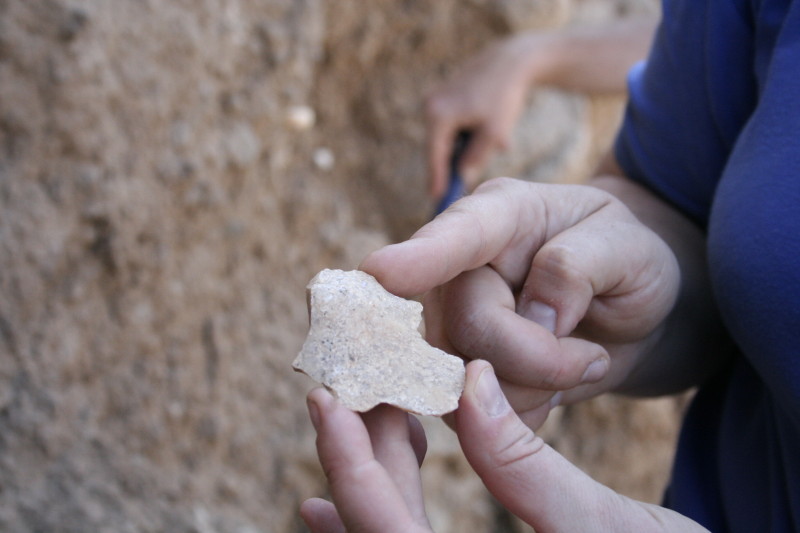
Evidence for Humans 1.2 Million Years Ago in Turkey
A stone artifact found on sediments on the bank of Gediz River in Western Turkey, provides new evidence that Anatolia, on the crossroads of Africa, Asia and Europe, had been settled by tool-using human ancestors (hominins) 1.2 million years ago. The finding also shows that passage of early humans into Europe was much earlier than believed so far.
The piece of quartzite, which has gained the distinction of being the oldest stone tool found in Turkey, was serendipitously discovered lying on the surface of sediment in a bend of the meandering river bed.
“The flake was an incredibly exciting find.I had been studying the sediments in the meander bend and my eye was drawn to a pinkish stone on the surface. When I turned it over for a better look, the features of a humanly-struck artefact were immediately apparent”, said Professor Danielle Schreve from the Department of Geography at Royal Holloway, University of London, who led the team which included British, Turkish and Dutch researchers.
“This discovery is critical for establishing the timing and route of early human dispersal into Europe. Our research suggests that the flake is the earliest securely-dated artefact from Turkey ever recorded and was dropped on the floodplain by an early hominin well over a million years ago” she added.
Lack of signs of erosion that would be on the artifact had it been carried by the river, is seen as evidence that it was left on the ground.
Findings from the radiometric dating based on the ratio of 40argon to 39argon and the paleomagnetic analysis of the lava flows before and after the formation of the river bed, carried out with the help of geologists and archaeometry specialists, showed that humans lived in the area 1.24 – 1.7 million years ago.
Formerly, the oldest hominin fossils had been found in a bed of travertine at Kocabaş, near the Western Turkish town of Denizli.
Although Professor Schreve’s team saw problems with the dating of these specimens, the Journal Earth and Planetary Science Letters puts the age of the fossils, unearthed by Professor Cihat Alçiçek of Pamukkale University at Denizli and an international team of archaeologists and paleontologists, in the bracket of 1.3 – 1.1 million years ago, basing the estimate similarly on radioisotope dating and paleomagnetic analyses of sediments in the area.
REFERENCES
- 1. “Scientists discover oldest stone tool ever found in Turkey”, Royal Holloway, University of London, 23 December 2014
- 2. “Dating the Homo erectus bearing travertine from Kocabaş (Denizli, Turkey) at at least 1.1 Ma”, Earth and Planetary Science Letters, 15 March 2014”
